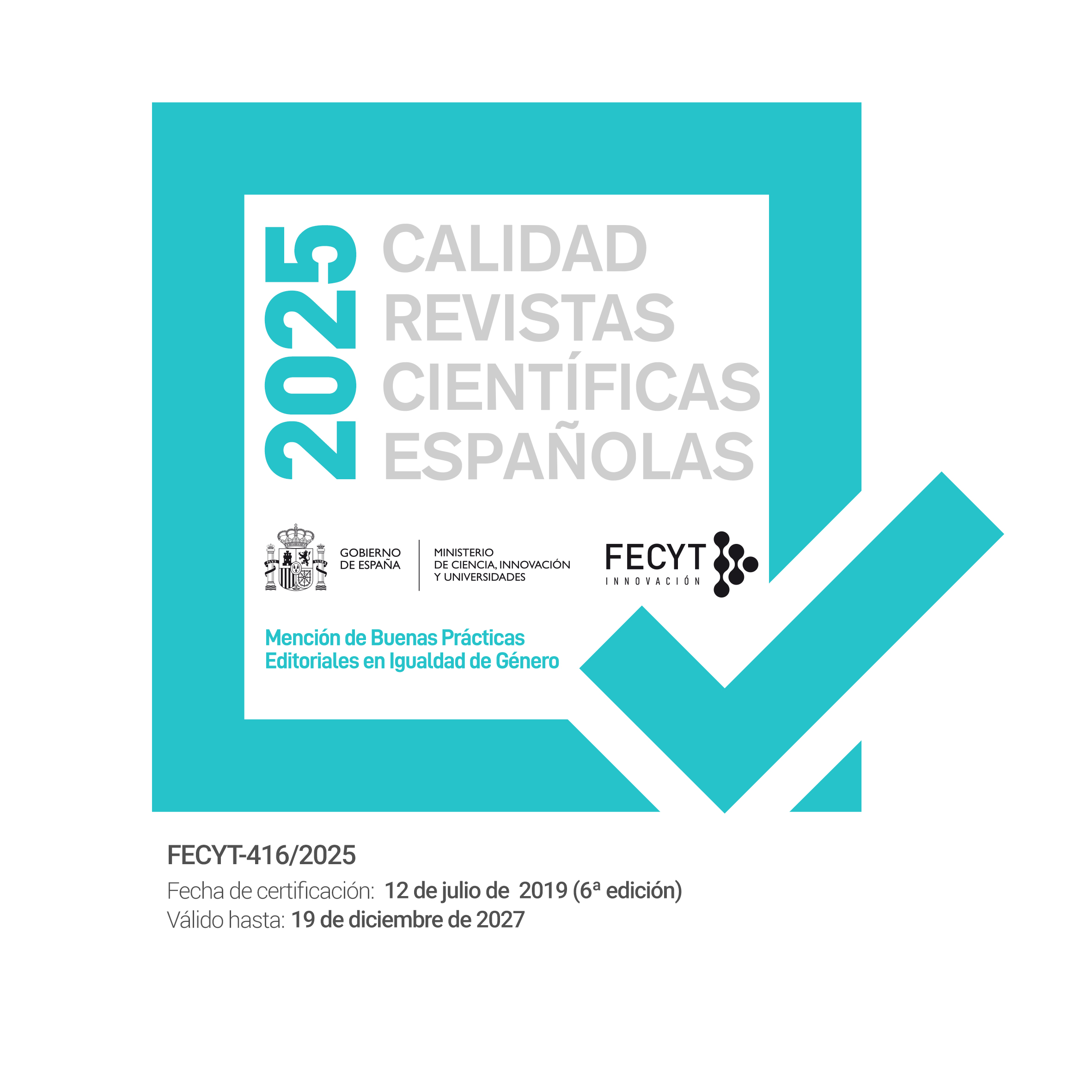Caged verses: some new notes on the politics of The Pisan Cantos
Palabras clave:
Ezra Pound, The Cantos, Fascism, Exile, WWMII, Political Religion.Resumen
The Pisan Cantos is the most notorious section of Pound’s masterpiece The Cantos, which was named after the concentration camp of Coltano, near Pisa, where Pound was imprisoned by the US army after the fall of Italian Fascism. There, the exiled American poet was detained in the infamous ‘gorilla cage’ because of his propagandist activity in favour of Mussolini and his regime, for which he was indicted for treason against his own homeland. Despite his inhuman treatment, Pound wrote there some of the most renowned and appreciated verses of the twentieth century, worthy of the first Bollingen Prize as awarded to him in 1949 by the Fellows in American Letters of the Library of Congress. Apart from their undisputable artistic value, praised for decades by critics, these verses also attained an important political function, inspiring generations of fascist intellectuals and activists. This article aims to shed further light on this political relevance by uncovering archival material not yet analysed by scholars.
Descargas
Referencias
BACIGALUPO, M. (2007): “The Myth of the Revised Opening of The Pisan Cantos”, Notes and Queries 54 (2):169-171
BUSH, R. (1977): The Genesis of Ezra Pounds Cantos, Princeton University Press, Princeton.
BUSH, R. (2010): “La Filosofica Famiglia: Cavalcanti, Avicenna, and the ‘Form’ of Ezra PoundsPisan Cantos”, Textual Practice 24 (4): 669-705
COWLEY, D.; WILLIAMSON, C. (2007): The World of the Book, Miegunyah Press, an Imprint of Melbourne University Publishing Limited, Carlton, Victoria.
DOUGLAS, C. H. (1920): Economic Democracy, Cecil Palmer, London.
FELDMAN, M. (2013): Ezra Pounds Fascist Propaganda, 1935-45, Palgrave Pivot, Basingstoke.
FENOLLOSA, E. F. (2010): Epochs of Chinese & Japanese Art, an Outline History of East Asiatic Design, Nabu Press, s. l.
FREEMANN, R. Z. (2016): A Concise History of the Second World War: Its Origin, Battles and Consequences, Merriam Press, Bennington.
GENTILE, E.; MALLETT, R. (2000): “The Sacralisation of Politics: Definitions, Interpretations and Reflections on the Question of Secular Religion and Totalitarianism”, Totalitarian Movements and Political Religions 1 (1): 18-55
GENTILE, E. (2001): Le Religioni Della Politica: Fra Democrazie E Totalitarismi, Laterza, Rome.
GRIFFIN, R. (2007): Modernism and Fascism: The Sense of a Beginning under Mussolini and Hitler. Palgrave Macmillan, Basingstoke.
HULME, Th. E. (1936): Speculations: Essays on Humanism and the Philosophy of Art, edited by Herbert Read, with a frontispiece and foreword by Jacob Epstein, Routledge & K. Paul, London.
HULME, Th. E. (1955): Further Speculations, edited by Samuel Lynn Hynes, University of Minnesota Press, Minneapolis.
JACKSON, P. (2012): Great War Modernisms and The New Age Magazine, Bloomsbury Academic, London.
JIANG, L. (2018): A History of Western Appreciation of English-translated Tang Poetry, Springer, Berlin - Heidelberg.
KAPLAN, A. Y. (2005): The Interpreter, Free Press, New York.
KENNER, H. (1971): The Pound Era, University of California Press, Berkeley.
KENNER, H. (1985): The Poetry of Ezra Pound, University of Nebraska Press, Lincoln.
LONGENBACH, J. (1988): Stone Cottage: Pound, Yeats, and Modernism, Oxford University Press, New York.
MARSH, A. (2011): Ezra Pound, Reaktion Books, London.
MARTIN, W. (1967): The New Age under Orage: Chapters in English Cultural History, Manchester University Press, Manchester.
MILZA, P. (2011): Gli Ultimi Giorni Di Mussolini, Longanesi, Milan.
MOODY, A. D. (2009): Ezra Pound: Poet: I: The Young Genius 1885-1920, Oxford University Press, Oxford.
POUND, E. (1913): “In a Station of the Metro”, edited by Harriet Monroe, Poetry, 12. April 1913 <https://library.brown.edu/pdfs/1205845053374034.pdf> [Accessed: December 14, 2018].
POUND, E. (1915): “Affirmations, II Vorticism,” The New Age, January 14, 1915.
POUND, E. (1916): Gaudier-Brzeska: A Memoir, William Clowes and Sons, London and Beccles.
POUND, E. (1917): Lustra, Knopf, Ann Arbor.
POUND, E. (1920): Hugh Selwyn Mauberley, Ovid Press, London.
POUND, E. (1933): A Draft of XXX Cantos, Faber and Faber, London.
POUND, E. (1935): Social Credit: An Impact, Stanley Nott, London.
POUND, E. (1962): The Letters of Ezra Pound, 1907-1941, edited by D. D. Paige, Harcourt, Brace & World, New York.
POUND, E. (1984): Aquí la voz de Europa: Alocuciones desde Radio Roma, Ediciones De Nuevo Arte Thor, Barcelona.
POUND, E. (1996): The Cantos, New Directions, New York.
POUND, E. (2003): The Pisan Cantos, edited by Richard Sieburth, New Directions, New York.
POUND, E. (2015): Posthumous Cantos, edited by Massimo Bacigalupo, Carcanet, New York.
POUND, E. (2018): Cantos. Translated by Jan de Jager, Sexto Piso, Madrid.
POUND, E.; POUND, D. (1999): Ezra and Dorothy Pound: Letters in Captivity, 1945-1946, edited by Omar S. Pound and Robert S. Spoo, Oxford University Press, New York.
RACHEWILTZ, M. D. (1975): Ezra Pound, Father and Teacher: Discretions, J. Laughlin by New Directions Pub., New York.
REDMAN, T. (1991): Ezra Pound and Italian fascism, Cambridge University Press, Cambridge.
SANAVIO, P. (2005): La Gabbia Di Pound, Fazi, Roma.
SOREL, G. (1915): Reflexions on Violence, translated by Thomas Ernest Hulme, George Allen and Unwin, London.
STARK, R. (2012): Ezra Pound’s Early Verse, Edinburgh University Press, Edinburgh.
STOCK, N. (1964): Poet in Exile: Ezra Pound, Manchester University Press, Manchester.
TAYLOR, Ch. (2007): A Secular Age, Belknap Press of Harvard University Press, Cambridge, MA.
TERRELL, C. F. (1993): A Companion to the Cantos of Ezra Pound. Berkeley, University of California Press, Berkeley.
WIDEMAN, J. E. (2018): Writing to Save a Life: The Louis Till File, Canongate, Edinburgh.
WILHELM, J. J. (1994): Ezra Pound: The Tragic Years, 1925-1972, Pennsylvania State University Press, University Park Pa.
WOHL, R. (1981): The Generation of 1914, Harvard University Press, Cambridge, MA.
ZIELIŃSKI, T. (1924): La Sibylle: Trois Essais Sur La Religion Antique Et Le Christianisme, Rieder, Paris.
Descargas
Número
Sección
Licencia
Deprecated: json_decode(): Passing null to parameter #1 ($json) of type string is deprecated in /var/www/vhosts/revistavegueta.ulpgc.es/httpdocs/ojs/plugins/generic/citations/CitationsPlugin.php on line 68



